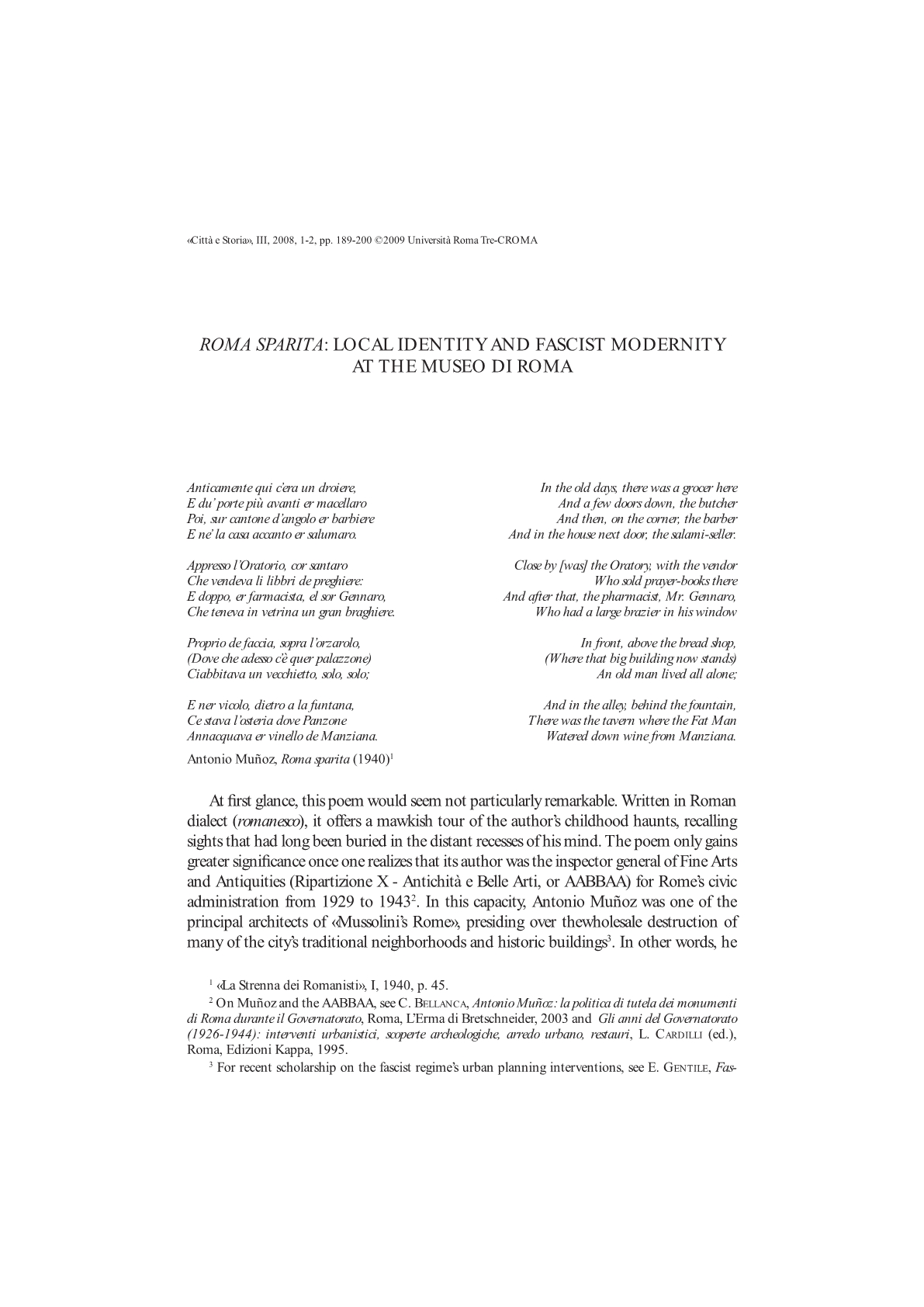Indice dei fascicoli
CITTÀ & STORIA » 2008/1-2 » I Musei della città
ISSN 1828-6364
Joshua Arthurs
Roma Sparita: Local Identity and Fascist Modernity at the Museo di Roma
pp.189-200, DOI 10.17426/97108
Articoli
Abstract: This study examines problems of civic museum display, local identity and political ideology in fascist Rome. It focuses upon the Museo di Roma, established in 1930 as a repository for Roma sparita, the parts of the city whose traces were vanishing as a result of the regime’s aggressive program of urban transformation. For the planners of «Mussolini’s Rome», the museum was not just a space in which to present the city’s local traditions but was itself an instrument of modernization. Hostile to Rome’s popular culture and seeking to create a monumental capital in its own image, fascism sought to erase reminders of Italian backwardness and regional particularisms. By establishing the Museo di Roma as a hermetically sealed space, authorities could consign the city’s local identities to the realm of memory and nostalgia, distanced from contemporary life. The museumifi cation of Roma sparita was the necessary corollary of constructing Roma Mussolinea.

Referenze
- download: n.d.
- Url: http://archivio.centroricercheroma.it/?contenuto=indice-dei-fascicoli&idarticolo=779
- DOI: 10.17426/97108
- citazione: A. Joshua, Roma Sparita: Local Identity and Fascist Modernity at the Museo di Roma, "Città & Storia", III/1-2, pp.189-200, DOI: 10.17426/97108

